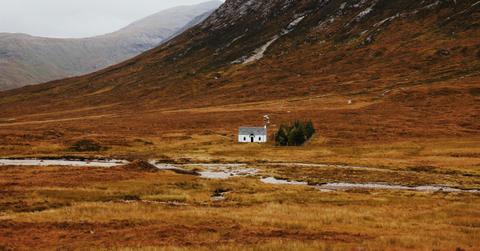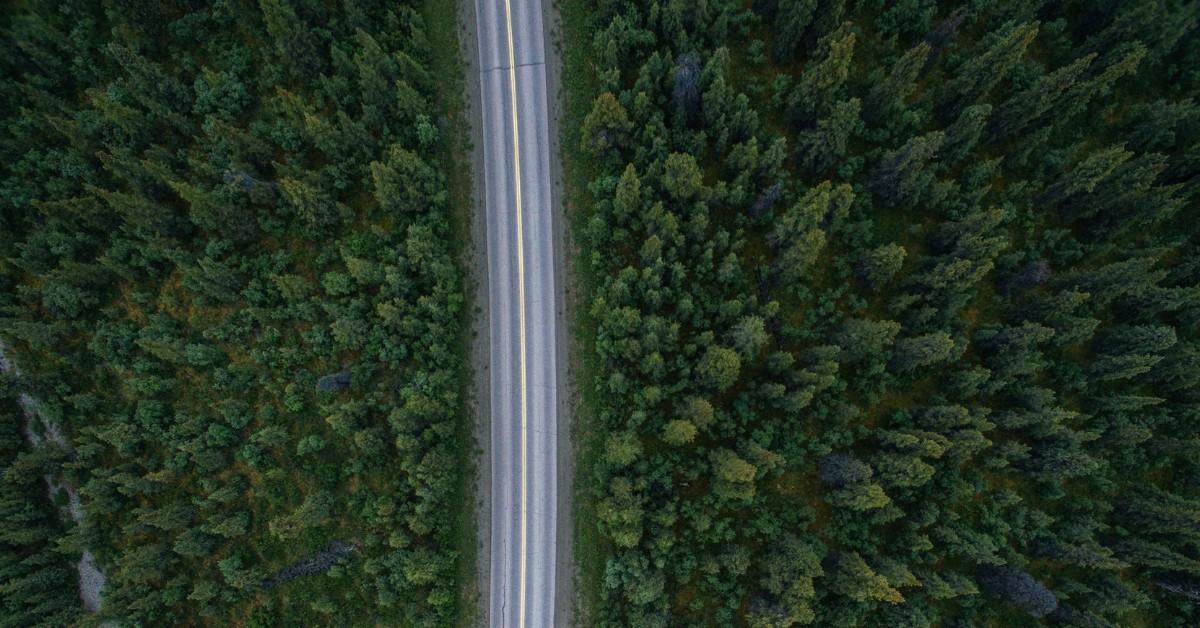The Surprising Dangers of Rural America
Read this before you decide to make your next big move.
Published Oct. 3 2024, 10:53 a.m. ET

They say that home is where the heart is, and when it comes to where you're laying your head at night, your heart may be a little safer and have a higher quality of life depending on your exact location. That's because there are certain benefits to living within close proximity to towns, cities, and rural landscapes.
As for whether or not it's safe to live out in the middle — a turn of phrase that can have different meanings depending on the context — well, the answer may surprise you. Keep reading to see why your zip code matters to your safety, and what you need to keep in mind if you're planning on relocating anytime soon.

There are plenty of benefits to living out in the middle, aka in a rural area.
There are plenty of benefits of living in a rural area, the peace and quiet among them, but is it safe to live somewhere that is so far removed from important amenities like grocery stores, health care providers, and even your local firehouse? The answer depends on whether the pros outweigh the cons in your life.
For example, one big pro is rural areas often have a lower cost of living. That means you may find affordable housing, lower taxes, and even cheaper insurance out there.
Additionally, you won't have to deal with some downsides that those living in close quarters may have to, including air pollution and noise pollution. You may even get to live somewhere with amazing views or lots of space, depending on what part of the country you're in.
Is it safe to live out in the middle of nowhere?
All of the above benefits of living in the middle of nowhere does come at a cost, and you may end up sacrificing a few creature comforts when you live far from town. That include quick access to medical care in an emergency.
And I'm not just talking about minor injuries like getting stitches or having a broken bone set (both of which are important to keep in mind, though). I'm talking about dealing with a serious condition that requires a specialist's care, or experiencing a sudden life-threatening event, like a heart attack. Anyone living far from hospitals and doctors would need to take very long trips for emergency care and treatments.
The U.S. Government Accountability Office says that this may have to do with the fact that rural hospitals are closing at a surprisingly fast rate, with around 4 percent of them shuttering between 2013 to 2020 alone.
Those healthcare-related drives aren't all you need to worry about either. When you live in a rural area you can't exactly run out for a quick trip to the store. Shopping for your weekly grocery haul could easily turn into an all-day affair, depending on where you're located.
And then of course there's finding a job. Unless you work from home or are a farmer, you can expect long commutes, limited prospects, and in some cases, both.
Is it safe to live in the middle of the country?
When it comes to the middle of America, your options are actually pretty plentiful. The exact center of the contiguous U.S. is just outside of Lebanon, Kansas. But, when it comes to what we think of as middle America, that includes a whole swath of places that often get referred to as "the heartland." That includes states like Ohio, Nebraska, Illinois, South Dakota, and more.
Is it safer to live in rural areas, suburbs, or the city?
If crime is a top concern, it may be comforting to know that there are certain places that are universally safer to live, and location may surprise you.
According to TIME magazine, cities are often much safer than their less populated counterparts. In fact, a study published in a 2013 issue of the Annals of Emergency Medicine found that rural areas see 20 percent more accidents and violent crimes than urban centers.
Of course, while crime is still common in cities, you're less likely to die an accidental death because of it.
And it's not just crime taking out those folks who like a lot of space between themselves and their next door neighbor. The Centers for Disease Control and Prevention (CDC) says that people who live in the middle of nowhere are also more likely to die from conditions like stroke, heart disease, and the like.
But that doesn't mean that living out in the middle of nowhere is more hazardous to your health in general; it just means that lifestyle choices in these areas coupled with access to both emergency and routine medical care can make a difference.
If you're thinking about making a move to rural America, you may want to think about what kind of changes you'll need to make in order to thrive in your new hometown.